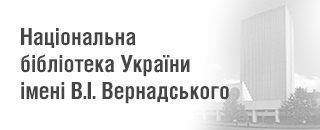THE IMPACT OF INTERNET COMMUNICATIONS ON THE TRANSFORMATION OF POLITICAL CULTURE IN UKRAINE’S PUBLIC ADMINISTRATION SYSTEM
DOI:
https://doi.org/10.31470/2786-6246-2025-12-6-13Keywords:
public administration, Internet communication, transformation of political culture, impact of artificial intelligenceAbstract
The article presents a systematic analysis of the impact of Internet communications on the transformation of political culture in the public administration system of Ukraine. In the context of global digitalization, Internet communications are becoming a determining factor in the transformation of the political culture of society and the public administration system. The Internet environment is conducive to unauthorized access to personal information and negative impact on the information infrastructure of public authorities. The sources of such threats can be terrorist groups, special services of foreign states hostile to Ukraine, hackers, and extremist organizations. The study demonstrates a fundamental transformation of political culture in the public administration system of Ukraine under the influence of Internet communications. The main result is the transition from a paternalistic-subjective to a civic-activist model of political culture, characterized by the formation of new value orientations and models of political behavior. Citizens become active participants in the political process through digital tools, and the state transforms the mechanisms of interaction with society through e-government.
The study revealed the ambivalent nature of the impact of Internet communications. Positive effects include expanding political participation, increasing government transparency, and developing civil society. Negative effects are manifested in the polarization of society, the spread of disinformation, and the deepening of digital inequality. Regional analysis showed disparities between large cities and the periphery in adapting to digital forms of political interaction, which requires targeted state policy.
The formation of a culture of information security in the context of hybrid threats is of critical importance. Ukraine's experience confirms the need to develop media literacy as a component of political culture to counter manipulative influences. Prospects for further research include studying the impact of artificial intelligence on political culture, analyzing regional features of digital transformation, and developing mechanisms to counteract the negative effects of digitalization. In general, the success of transformation depends on the ability of society and the state to adapt to digital realities while preserving democratic values.
References
Andrushchenko, V.P. (2005). Orhanizovane suspilstvo. Problema orhanizatsii ta suspilnoi samoorhanizatsii v period radykalnykh transformatsii v Ukraini na rubezhi stolit [Organized society. The problem of organization and social self-organization during radical transformations in Ukraine at the turn of the century]. Kyiv: Atlant YuEmSi [in Ukrainian].
Bebyk, V.M. (2005). Informatsiino-komunikatsiinyi menedzhment u hlobalnomu suspilstvi [Information and communication management in global society]. Kyiv: MAUP [in Ukrainian].
Dubov, D.V. (2010). Informatsiine suspilstvo v Ukraini: hlobalni vyklyky ta natsionalni mozhlyvosti [Information society in Ukraine: global challenges and national opportunities]. Kyiv: NISD [in Ukrainian].
Karmazina, M. (2020). Politychna kultura Ukrainy: problemy stanovlennia i rozvytku [Political culture of Ukraine: problems of formation and development]. Kyiv: IPiEND im. I.F. Kurasa NAN Ukrainy [in Ukrainian].
Mykhalchenko, M.I. (2005). Ukrainska natsionalna ideia yak rehuliatyvna syla v zahalnoderzhavnomu i rehionalnomu masshtabakh [Ukrainian national idea as a regulatory force at the national and regional levels]. Rehionalni versii ukrainskoi natsionalnoi idei: spilne i vidminne – Regional versions of the Ukrainian national idea: common and different. (pp. 9–34). Kyiv [in Ukrainian].
Pashyna, N.P. (2021). Kontseptualni zasady internet-komunikatsii u publichnomu upravlinni [Conceptual principles of Internet communications in public administration]. Kyiv: NADU [in Ukrainian].
Pocheptsov, H.H. (2008). Informatsiina polityka [Information policy]. Kyiv: Znannia [in Ukrainian].
Radchenko, O.V. (2009). Tsinnisna systema suspilstva yak mekhanizm demokratychnoho derzhavotvorennia [Value system of society as a mechanism of democratic state-building]. Kharkiv: Vyd-vo KharRI NADU "Mahistr" [in Ukrainian].
Rudych, F.M. (2009). Politolohiia [Political science]. Kyiv: Lybid [in Ukrainian].
Almond, G., & Verba, S. (1963.) The Civic Culture: Political Attitudes and Democracy in Five Nations. Princeton: Princeton University Press [in English].
Bell, D. (1999). The Coming of Post-Industrial Society. New York: Basic Books [in English].
Castells, M. (2001). The Internet Galaxy: Reflections on the Internet, Business, and Society. Oxford: Oxford University Press [in English].
Toffler, A. (1980). The Third Wave. New York: Bantam Books [in English].







